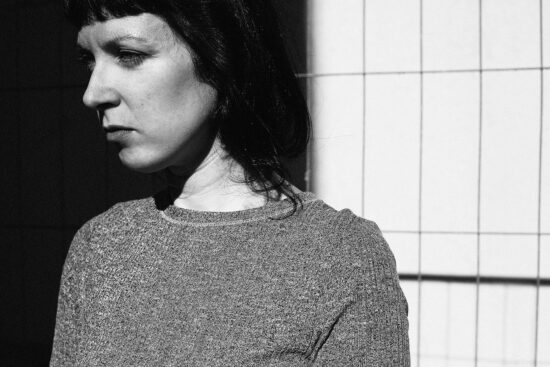Virginija Kulvinskaitė

Photo by Laima Stasiulionytė
Virginija Kulvinskaitė (born 1983) is a poet and a writer, whereas Virginija Cibarauskė has earned her PhD (her thesis focused on the relationship between an author’s biography and their work) and is among the most influential literary critics. They really are the same person who, on the one hand, has found a practical solution to balancing her varied interests and activities, but on the other hand, is overtly enjoying identity games. Her most successful poetry collection so far (included in the Most Creative Book of the Year list from the Lithuanian Institute of Literature and Folklore in 2018) is called Antrininkė, which roughly translates as Doppelganger. Her smashing novel kai aš buvau malalietka is about the teenage years of a girl called Virga, which is usually short for Virginija. Some details may or may not be autobiographical, but generally it is all fiction, the author claims in all seriousness. If you are not convinced, she may deploy the critic to persuade you or to dombfound you.
kai aš buvau malalietka (when i was a squirt). Vilnius: Kitos knygos, 2019. – 164 p. English, French, German sample translations available
The publisher’s blurb describes the novel as “confessional prose”, moreover, the first to be written by a woman about the “wild 90s”. While the publicity for the book makes much of the guesswork about how much in it is “true”, the novel itself is much more interesting that such gossip. On the one hand, it is a memoir of a rather trashy 1990s adolescence, of poverty both in material terms, but also in human relationships (and especially parenting) that is only recognizable as poverty to contemporary Lithuanian readers from the distance, but was taken for granted as “normal” by numerous people who experienced it at the time. Such literary maneuver seems to be performed with particular skill and is probably one of the reasons why so many people have identified with the book and its narrator. On the other hand, it is a rather rebellious take on Bildungsroman: many reviewers observe that Virga does not seem to “learn” anything, or “grow up” in any way, but she does sound different, much more mature in the final chapters. Of course the nostalgia for the slang, the locations, the fashions and activities of the 90s plays a part, but the book can hardly be reduced to that.
Keturi (Four). Vilnius: Kitos knygos, 2023. – 112 p. English sample translation available
Four short stories, four seasons and four narratives – different and dissimilar at first glance, but once you read them, it becomes clear that they are linked by the other, non-façade and dark side of existence, where one finds fear, self-destruction, inner schisms and screams that do not break through to the surface. All four stories take place in an unnamed port city. Lukas Garšva, a fashionable writer of the younger generation, experiences an unexpected and surprising reading of his work at a seaside reading club, as if questioning his entire success. Divorced Inga spends her days attempting to disconnect from her own self, to let everything that doesn’t matter fade away. Marius, a lonely seventh-grader, will become a professional assassin in the future, but in the meantime, there is nothing but a bleak and lonely everyday life, both at school and with his family. Forty-six-year-old Nora is stuck in a vicious circle – she is in love with a drug addict, Denis, and keeps hoping that this time will be the last. All of Kulvinskaitė’s characters, each in their own way self-trapped in their own worlds, testify, through these stories of loneliness, sadness, and the proximity of death, that man is a stranger to the world.
Read English sample translation
Selected translations
Ukrainian: коли я була малолєткою. Translated by Volodyslav Žurba. Тернопіль: Навчальна книга – Богдан, 2021
Contact for rights: aira@kitosknygos.lt
Contact for samples & other inquiries: kotryna.pranckunaite@lithuanianculture.lt